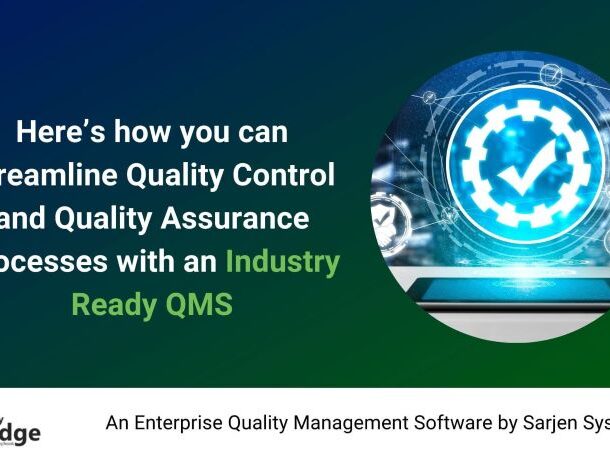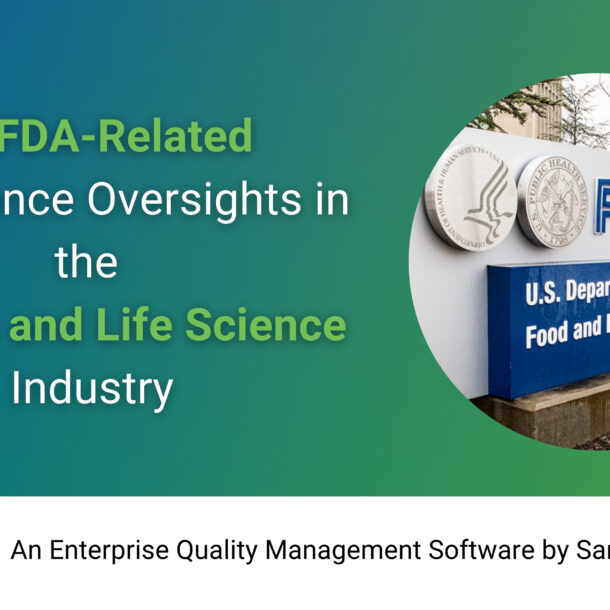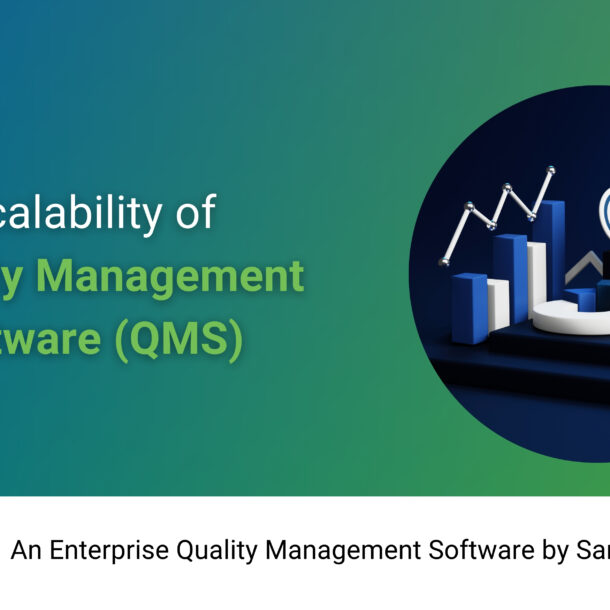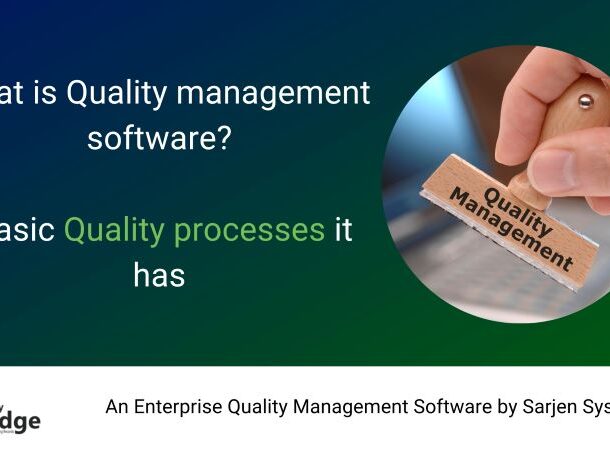
- Home
- Solutions
- Quality Processes
- Change Control
- Deviation
- Investigation
- CAPA Management Software
- Market Complaint
- Document Control
- SOP
- Protocol
- Work Instruction
- Specification
- Controlled Copy Release (Doc Issuance)
- Electronic Training Records
- eLearning
- Training Records Management
- Training Scheduling
- Product Quality Review (PQR)
- Vendor Quality
- Bundled Packages
- Resources
- About
- Contact us
What is Quality Assurance and Quality Control? Difference between QA and QC
Quality Assurance (QA) and Quality Control (QC) are two distinct processes that are part of quality management and are often used in the context of product and service development. While they share the common goal of ensuring the quality of a product or service, they involve different activities and are carried out at different stages of the development process.
Ensuring the delivery of high-quality products or services is paramount. Quality Assurance (QA) and Quality Control (QC) play pivotal roles in achieving this objective. While the terms are often used interchangeably, they represent distinct processes within the larger framework of quality management. In this blog post, we will delve into the definitions, purposes, and key differences between QA and QC.
Quality Assurance (QA):
QA is a practical process that focuses on preventing defects and errors before they occur. It is a set of planned and systematic activities- designed to ensure that processes are established and continuously improved to facilitate the delivery of high-quality products or services. The primary goal of QA is to provide confidence to stakeholders that the project will fulfill its quality requirements.
Key Aspects of QA:
Process-Oriented: QA concentrates on establishing and optimizing processes to ensure they line up with the project’s quality objectives.
Preventive in Nature: QA aims to identify and eliminate potential issues before they impact the final product.
Standards and Guidelines: QA involves the creation and adherence to standards, guidelines, and best practices that guide the development process.
Quality Control (QC):
Quality control, on the other hand, is a reactive process that focuses on discovering and resolving flaws in the finished product. It involves executing specific activities, such as inspections and testing, to ensure that the deliverables meet the specified quality standards. QC is essential for validating that the product or service conforms to the established requirements.
Key Aspects of QC:
Product-Oriented: QC is concerned with the end product and involves activities like testing, inspection, and corrective actions.
Detective in Nature: QC identifies and rectifies defects that have already occurred during the development process.
Verification and Validation: QC verifies that the project outputs meet the specified requirements and validates that the end product functions as intended.
Distinguishing Between QA and QC:
Focus: QA focuses on process improvement and prevention of defects, while QC focuses on defect identification and correction in the final product.
Timing: QA is implemented throughout the project life cycle, from planning to execution. QC is applied during the testing and inspection phase, typically towards the end of the project.
Approach: QA involves a proactive and strategic approach to quality management, emphasizing prevention. QC is reactive, dealing with defect identification and correction.
Conclusion:
Both QA and QC are integral components of effective quality management software. While QA sets the foundation for quality by focusing on process improvement and prevention, QC ensures that the end product meets the established standards through testing and inspection. Implementing a balanced approach that incorporates both QA and QC is crucial for delivering successful projects that meet or exceed investor expectations.
QEdge Quality Management System solutions enable you to simplify operations, eliminate mistakes, and improve overall performance. Our commitment to quality is evident in all aspects of our services, making us a reliable partner for organizations seeking excellence. QEdge helps organizations maintain high-quality standards through documentation and training, as well as continuous improvement programs.
Contact Sales to book a free demo!
Related Articles
QEdge Quality Management Software Suite
Contact Us
6th Floor, Arista, 100 Feet Anand Nagar Rd, Jodhpur Village, Ahmedabad, Gujarat 380015
Phone : +91-79-66214899
Email: sarjen@sarjen.com





